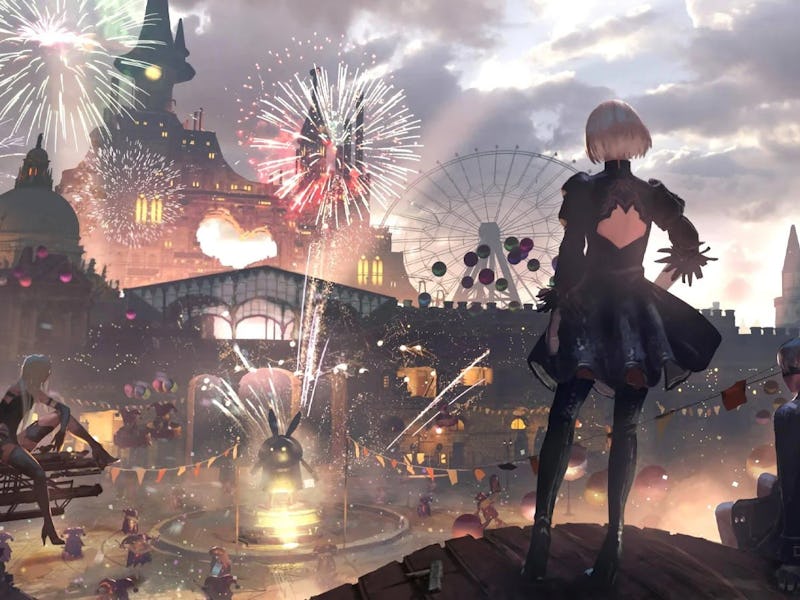You need to play the most cerebral sci-fi RPG on Nintendo Switch ASAP
NieRly perfect

The Nintendo Switch has already been home to some incredible ports, games that ostensibly shouldn’t work nearly as well as they do on the system. Titles like The Witcher 3, DOOM, and Skyrim run surprisingly well on Nintendo’s system, but as great as those are NieR: Automata The End of YoRHA Edition is here to take the title of best Nintendo Switch port. Square Enix has seemingly worked some black magic to bring the beloved RPG to Switch, with an experience that loses almost nothing in terms of quality, and even adds in a little something extra for the heck of it.
NieR: Automata has built a reputation as one of the best RPGs of the last decade, and for good reason. Without going too deep into things, it’s one of those experiences that can only work as a video game and takes full advantage of the player’s relationship to the “game” on a meta level.
Automata’s story is truly something that needs to be experienced, but if you’re unfamiliar, the narrative takes place in the far future of Earth and focuses on two combat androids named 2B and 9S. In the year 11945 AD, humanity has fled the Earth after the planet has been taken over by machine lifeforms. An army of androids known as YoRHa is now given the task of retaking the planet.
The complex relationship between 2B and 9S is the emotional core of Automata’s narrative.
While Automata bears a lot in common with other Platinum Games action RPGs, like Astral Chain, it does things a bit differently. While Automata’s world and narrative feel grand, its gameplay manages to strike a bit of an arcade-y feel. Automata constantly switches things up with interesting camera angles and alternative gameplay, like bullet-hell hacking segments and 2D platforming sequences. Of course, a vital part of all of Platinum’s games is fast and responsive combat, with the performance to back it up.
While Automata caps at 30fps on Nintendo Switch, the visuals and feel of gameplay feel like an almost identical experience to playing the game on PS4. The most notable change is some textures that take a resolution hit, but I found myself consistently blown away by how good Automata looks on Switch, even in handheld mode.
At the same time, the Switch version does a phenomenal job of staying at 30fps, even in more hectic boss battles. I can count the times my framerate dropped on one hand, and even then the drops weren’t prolific enough to ruin anything. Playing Automata on Switch feels so much like the PS4 version, that I’d honestly recommend it for anyone who has never played the game and likes to take things on the go.
NieR: Automata’s gameplay is a strange mish-mash of action RPG, bullet hell, platformer, and more.
One of the really interesting things about Automata’s port is that it features full-blown motion controls, something you rarely see even from first-party Nintendo games these days. Even more surprising is that the motion controls actually work quite well, with the responsiveness needed for Automata’s fast-paced combat. Motion controls aren’t the ideal way to experience the game, but it’s a neat gimmick that makes it feel like Square Enix took the extra step to make this version unique. It’s also important to note the Switch version includes all previously released DLC, including combat colosseums and costumes.
By this point NieR: Automata is a five-year-old game, but the Switch version provides the perfect excuse to jump back in, and for the uninitiated, there’s nothing you’re losing out on. Automata features one of the most superbly emotional stories in all video games, backed up by action combat that ranks up there with some of Platinum’s best. It’s one of those games that explores the potential of video games as a storytelling medium, and it’s a delight to have such a stellar port that retains everything that makes NieR: Automata so special.
NieR: Automata The End of YoRHa Edition launches on October 6 for Nintendo Switch.
This article was originally published on